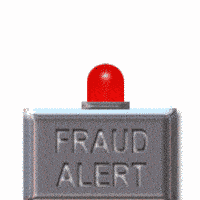Adding a business debit card to your arsenal of financial tools may be a smart move.
While credit cards are still king when it comes to paying for most small business expenses, debit cards are gaining in popularity. And no wonder. The best business debit cards let small company owners easily and seamlessly access funds in their checking account on the go without having to go to the trouble of cutting a check. So let’s take a closer look at this helpful financial tool and identify the best business debit cards for your company.

What is a business debit card?
Just like a personal debit card, a business debit card lets you access funds from your business checking account to pay for goods and services as well as withdraw cash. They are not credit cards, so your credit score isn’t checked or impacted when you apply. And while it’s a good idea to have a business savings account, you don’t have to have one to get a business debit card.
Debit cards are a great choice for business owners who have a decent balance to draw on and want the convenience of a credit card without incurring interest charges or counting against your credit limit. Because they are typically issued by Mastercard or Visa, you can use them wherever those cards are accepted.
Why should you consider getting a business debit card?
To begin with, a business debit card offers spending flexibility. Giving an employee a company debit card reduces accounting woes. They can make purchases on the company’s behalf without having to use their own money and then having to submit it on an expense report to be reimbursed.
A great way to control spending.

You typically can order as many employee business debit cards as you need. Some issuers let you set what spending categories a card is authorized to be used for. So if you have an employee who has to do a lot of driving on company business, you can give them a card that is limited to gasoline purchases. They can also be restricted for payments to certain suppliers. You can often even choose how much money can be spent on the card and set daily weekly, or monthly spending limits. Using business debit cards can provide a solution to out-of-control expense problems while also helping to prevent fraud.
A convenient means to manage money.
Other options besides business debit cards may include business deposit cards. These can be used to make quick and convenient deposits. There are also business ATM cards that can be used for cash withdrawals at most any place that has a machine.
How can you get a business debit card for your company?

Most of the time, you don’t have to do anything. Almost all banks, credit unions, and some other financial institutions will automatically issue your company a business debit card when you open a business checking account. So if you want a business debit card, the first thing you’ll need to do is to open a business banking account. If you don’t have a business bank account, though, you’ll first need to open one to get a business debit card. If you don’t want to open a business banking account but still want some of the conveniences of a business debit card, you might want to get a prepaid card that lets you load funds onto the card and spend the money that way.
What things should you think about when opening a business banking account?
If you haven’t opened a business banking account for your company yet, you should put it at the top of your list of things to do. It’s is a crucial step toward helping your business both look and operate professionally.
Business debit cards can also be an invaluable tool for separating your business and personal finances as well as for keeping track of purchases for accounting purposes.
Here are some things to consider before you open an account:
What are the fees? The days of 100% free checking are over. Chances are you’ll find that every financial institution you look at charges a variety of fees to account holders including:
Be aware that even “free” business checking accounts may charge some fees. The good news is that there may be ways to avoid them. For example, you may be able to get out of paying a monthly maintenance fee by maintaining a minimum average daily balance. If cash flow is tight, you may be able to add an overdraft line of credit to avoid bouncing checks and incurring non-sufficient funds (NSF or overdraft) fees. As with any financial agreement, you’ll always want to be sure to read the fine print so you aren’t surprised by unexpected charges.
Here are a few questions to ask yourself:

- 1How many transactions will you make? One or two a month? Or will you or your employees be using your business debit cards every day?
- 2What type of account is right for your business? As you see from the list of possible fees above, you will want to choose an account type that lets you avoid as many fees as possible.
- 3Do you want to earn interest? Although interest rates are currently quite low on deposit accounts, earning something may be better than nothing. That’s especially true if you plan on maintaining a hefty balance. So be sure to check out the Annual Percentage Yield (APY) on the account.
- 4Do you need to have access to a physical branch to deposit cash? If your business’s primary transactions are going to be cash sales, you probably want to choose a financial institution that has convenient brick-and-mortar branches where you can go in and make deposits. Be sure to check out the fee schedule for cash deposits. Their cash-handling fees may only apply to transactions above a certain limit.
- 5Are you going to need to frequently withdraw cash? If you are, you’ll want to make sure the ATM network is convenient and inexpensive. Otherwise, you may wind up paying expensive ATM fees for out-of-network (a.k.a. “foreign”) transactions at gas stations, convenience stores, or other banks. Check with your bank about these out-of-network fees. Some financial institutions will reimburse your extra ATM fees up to a limit.
- 6Is the account mobile-friendly? Being able to do online banking from your laptop or desk-top computer should is essential. However if you’re a business on the go you may need to access your account from your mobile device. Consequently, you’ll want to check out the mobile app on your account to make sure it has the mobile banking functionality you need. If you’re going to need to deposit checks without a trip to the bank, be sure that you can use mobile deposit as well.
- 7How easy is it to open an account? Some financial institutions make it easier than others to open a business bank account. But keep your expectations rooted in reality. All financial institutions have to comply with banking regulations to verify customer information. So don’t be impatient. Be prepared to share both business and personal information when you go to open an account.
- 8Will your account integrate with your software? If your bookkeeper can’t easily communicate with your bank, your accounting system will come to a screeching halt. Likewise, if you have e-commerce software that collects money, you’ll want that to work hand in hand with your bank account Being able to easily import transactions can make it easier for you or your bookkeeper to keep your accounts up to date.
What are the best business debit cards?
As mentioned earlier, most financial institutions will automatically issue you a business debit card when you open an account. So your choice isn’t really, “Which business debit card is best?” Instead, you should look at which business checking account is best for your company’s needs. Your debit card is simply a feature of your account.
Here are business debit card features you may want to look for when deciding where to do your business banking:
As a starting point, you might want to take a look at NerdWallet's Best Checking Accounts of November 2021 that include business debit cards with great features









What about fraud protection?
Most financial tools come with the risk of fraud that banks try to mitigate. Debit cards however are different from business credit cards because they draw on funds in the linked bank account. Consequently, debit cards are not covered by federal law in the case of unauthorized use. But you’re not out there unprotected. Instead, issuers typically offer zero-liability policies. Be sure to read the disclosures you find out what you need to do in the case of fraud.

When fraud isn’t fraud.
Keep in mind that all unauthorized spending isn’t fraud. If you give cards to employees, you are responsible for the charges they make. Just because you didn’t approve of what an employee used the card to buy doesn’t mean they qualify as an unauthorized purchase.
Another thing to consider is that whether your select “debit” or “credit” at checkout may affect how certain transactions are handled if you need to take advantage of zero liability coverage. This is another reason to read the disclosures.
That being said,, business checking accounts themselves may be covered by Federal Deposit Insurance Corporation insurance if the financial institution is a member of the FDIC. This coverage will be subject to specific limits.
Should your company have one of the best business debit cards?
It depends. As a small business owner, you will likely rely on a variety of financial products to run your company and manage cash flow. Those may include business bank accounts, credit cards, small business loans, and other tools like debit cards. The most important thing is to make sure you investigate all your options to choose the right account— and card— for your business.

The average small business has 5 credit cards with a balance of about $32k that they have to keep track of. There’s a better way than rotating through dozens of low-limit credit cards to get the funding you need to scale when you can get it all with AdCard — the best card for Facebook ads with the high limits and more you need to grow your business.


